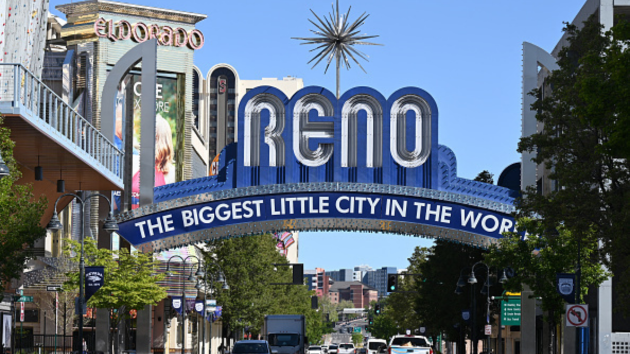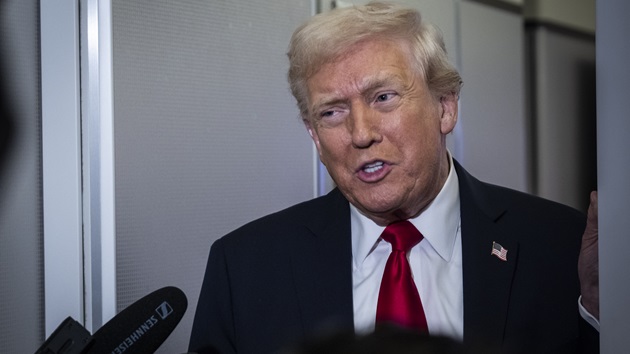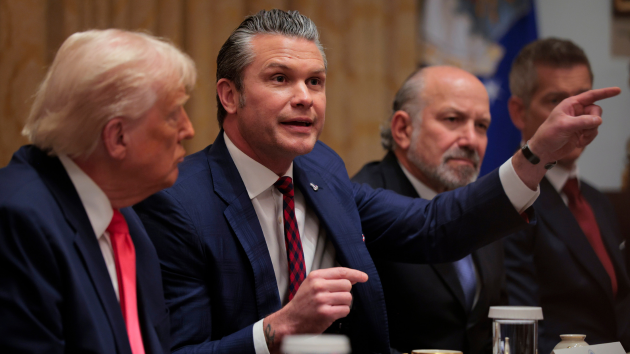Protecting Your Vote: Nevada’s ‘swingiest’ county emerges as key battleground in election certification fight
Written by ABC Audio All Rights Reserved on October 20, 2024

(WASHINGTON) — Politicos in Washoe County, Nevada, proudly refer to their home as “the swingiest county in the swingiest state,” where voters in the sprawling and sparsely populated swath of desert might very well tilt the scales of a deadlocked presidential election in November.
But Washoe has also carved out a reputation as the epicenter of a troubling nationwide trend: County officials refusing, for one reason or another, to certify election results.
Despite a legal requirement to accept the vote tally and pass the results along to state election officials, county supervisors in at least eight states have bucked this ministerial duty in recent election cycles, according to one watchdog group, prompting concern among democracy experts that it could upend voters’ faith in the election process.
“What was a sort of wild and desperate idea in 2020 has caught on with certifying officials in the last couple of elections,” said Sean Morales-Doyle, a voting rights expert at the Brennan Center for Justice, a nonprofit think tank. “It won’t be a successful tactic to overturn the outcome of our election, or to stop certification. But it will cause chaos and distrust in the meantime.”
In Washoe County, two members of the county board of commissioners have emerged as symbols of the broader dispute over vote certification: Alexis Hill, the Democratic chair of the board, and Michael Clark, a Republican commissioner. During board meetings, the two sit less than ten feet from each other on the dais. But when it comes to just about everything else — including the role of the commission in certifying election results — they are miles apart.
Hill, 41, lives just blocks from downtown Reno, the county’s most populous city, with her husband and 3-year-old daughter. Most days, she commutes to the county offices on her e-bike. Clark, 73, decamps each day to his ranch near Washoe Lake, where he tends to his horses, mules and dogs. On weekends, he rides his Harley.
‘A dark afternoon’
In the commissioners’ chambers, Hill and Clark regularly tangle over budgets and policy. But no issue fires them up more than election integrity. And in July, Clark and two Republican colleagues made national headlines when they refused to certify the outcome of two local races — prompting fears of what might come to pass in November.
“It was a dark afternoon,” Hill told ABC News’ Senior National Correspondent Terry Moran. “Decisions like that, they break institutions … they make people believe that we don’t have a fair and free election.”
Clark relented a week later under “extreme duress,” he explained at a commission meeting in July. The state’s attorney general had threatened him with felony prosecution for failing to execute a duty of his office.
In an interview with ABC News’ Terry Moran, Clark said he is not an election denier, but believes county election officials have failed to properly maintain the voter rolls. Clark pointed to thousands of mail-in ballots that were sent out to registered voters but returned to the county as undeliverable, which he characterized as evidence of poor recordkeeping by the registrar of voters.
“I believe that the people that are running the registrar of voters office can’t keep accurate records,” Clark said in the interview. “When I see sloppy bookkeeping, I don’t trust it.”
Washoe County Manager Eric Brown has acknowledged that the returned ballots might represent voters who had moved, thereby complicating their ability to vote — but he said at a recent meeting that the county had upgraded its voter registration system, which he said “has enhanced tracking and certification capabilities.”
“Moving forward, keeping track of voter records is going to be — we’ll be able to do that much more accurately,” Brown said.
Clark also said his vote to not certify results in July — which was the third time in his two-year tenure on the commission that he did so — was precipitated by what election experts have called erroneous legal advice from a county attorney who told commissioners to vote their conscience.
Clark’s vote “shocked” the state’s elections chief, Secretary of State Francisco Aguilar.
“It is a ministerial duty to certify the election,” Aguilar, a Democratic, told ABC News’ Terry Moran. “If there are concerns and questions about the election — about the election process, about the election administration — [the commission has] the power to schedule an agenda item to have a conversation about how elections work.”
‘That’s just not their job’
All fifty states make election-certification by county officials a mandatory duty of their job to prevent local partisan politicians from meddling in election results. Election disputes, which frequently arise, are typically resolved through audits, recounts, and the courts.
“It may seem odd to people that [the county officials] who are certifying the election aren’t necessarily the ones that investigate all the things that happened in the election,” Morales-Doyle said. “But that’s just not their job.”
But in the wake of the 2020 presidential election, when former President Donald Trump sought to challenge the outcome of the vote, some county officials have refused to certify results.
It began in Wayne County, Michigan, where Trump reportedly pressured two county officials to not certify the results of the 2020 presidential election, according to the Detroit News. In the intervening election seasons, more than two dozen officials in eight states, including key swing states like North Carolina and Pennsylvania, have followed suit, according to the watchdog group Citizens for Responsibility and Ethics in Washington.
In Arizona, two Republican supervisors in Cochise County were charged with felonies for delaying certification of the 2022 midterm election until a court ordered them to do so. Both have pleaded not guilty and are scheduled to go to trial next year. Both also remain in their seats on the county board.
And in Georgia, a state judge this week issued a directive that county officials cannot block the certification of votes due to allegations of fraud or error, ruling that officials “have a mandatory fixed obligation to certify election results.”
‘How you undermine democracy’
Back in Nevada, election officials say they are preparing for any possible challenge to the upcoming election results.
“So is this a contagion?” Moran asked Aguilar. “Do you see this happening in other counties this time around?”
“It may, but I think we are prepared, and we have been preparing for the last 18 months to address any issue that comes up. This was one of them,” Aguilar said. “I’ve been working extremely hard with the attorney general to anticipate some of these situations.”
“We have pre-drafted legal filings — kind of like a Mad Libs, right?” Aguilar said. “You know the county, you fill in the county name, you fill in the date, you fill in the facts. And you file that thing as soon as you can before the Nevada Supreme Court.”
Experts say the failure of county officials to certify results is unlikely to succeed in delaying or altering the outcome of the presidential election. But that does not mean it should not alarm American voters.
“Every time this has been tried before, courts have put a quick end to it. And they will again this year,” Morales-Doyle said. “But what it might do is undermine the public’s faith in our process. And that’s really damaging in and of itself.”
“That’s really harmful,” he said. “Democracy works because people have faith in the outcome of their elections. If you undermine that enough, that’s how you undermine democracy.”
In Washoe County, Hill said she would “absolutely” certify the results, regardless of the outcome in the presidential race or in her own reelection race for commissioner.
“I feel like we are ready to go for this general election. And I have no concerns,” she said. “I do believe that there are really good people who are trying to hold the house together.”
Clark, for his part, offered a more reserved commitment.
“Are you going to certify an election in November?” Moran asked him.
“Well, I guess I’m going to have to,” Clark said. “I don’t want to have an argument with the attorney general. The attorney general and the state of Nevada have much deeper pockets than I have.”
ABC News’ Hannah Prince contributed to this report.
Copyright © 2024, ABC Audio. All rights reserved.






 KVSP
KVSP